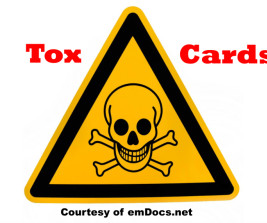ToxCard: Iron
EMDocs
DECEMBER 6, 2024
6 Can see subsequent electrolyte disturbances and dehydration related to severity of GI symptoms. Characterized by hypovolemia, vasodilation, reduced cardiac output, hyperventilation, elevated temperature, seizure, coma, and cardiovascular collapse. 5 Seizure: IV benzodiazepine first line, barbiturates as second line.














Let's personalize your content